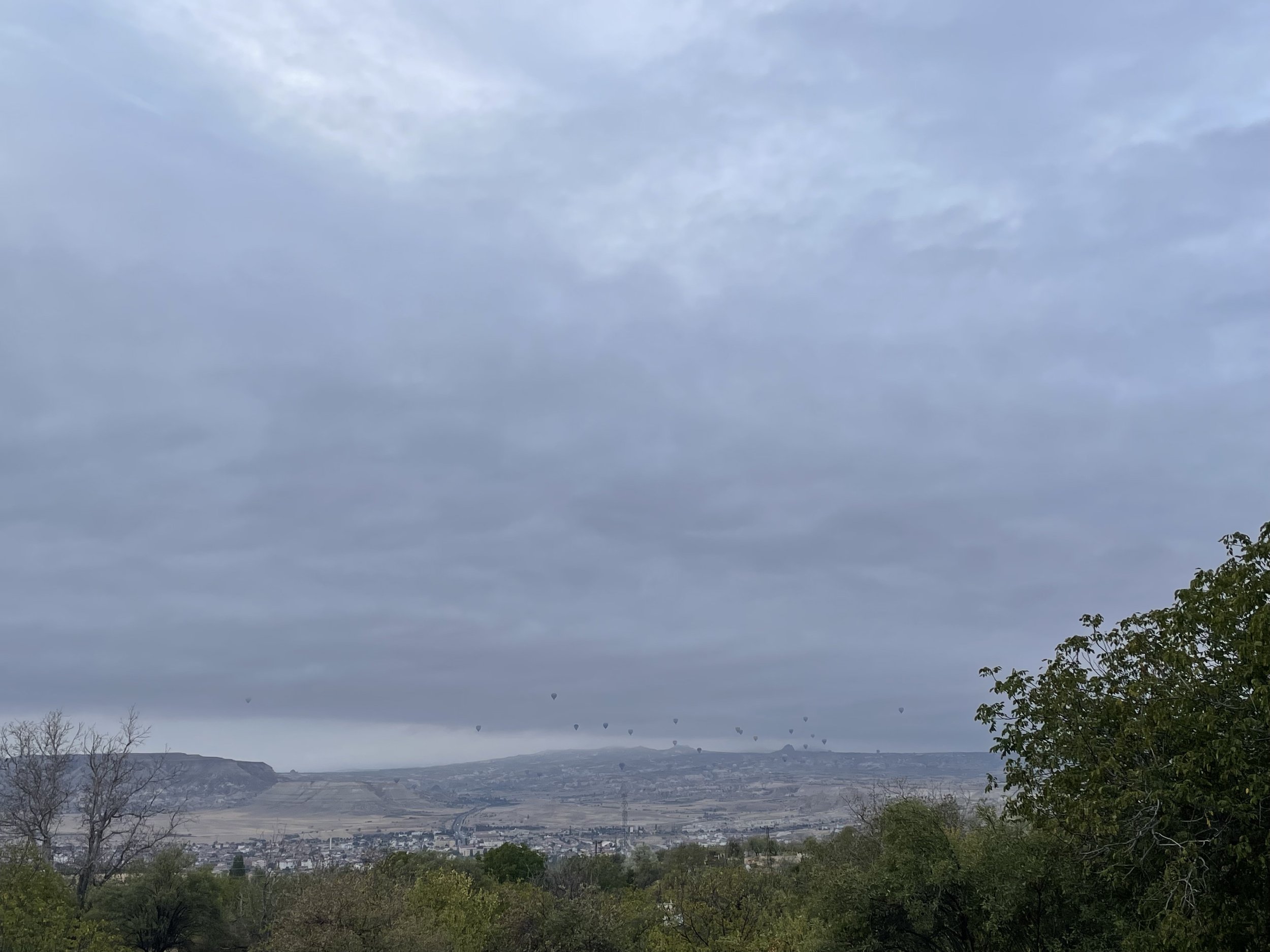“I write you this letter from the sacred Vanota,” begins Greogry’s Epistle 15, addressed to his friend Adelphius the lawyer. I laughed to the night-whispering walnuts overhead. Here! I was giddy with seven hours of hiking and unexpected nearness of my people, and it was some time before I could attend to his words.
“Vanota” sounds a bit unpolished to Gregory, and he opens his letter by musing on the contrast between the rough speech and the town’s loveliness. The river Halys runs gold and purple with its load of clay. (A hydroelectric dam has since cleared the water, but potters still dig clay from the river’s banks.) Gregory sees the mountain above the town densely covered in oaks. (These have vanished, but the hill on which we’re staying is one of the few remaining patches of forest, greened with willows, poplars, walnuts and pines.)
Between forest and town, Gregory’s Vanota is mantled in vineyards. Apples are there too, “approaching to the hue of [their] own blossom with the brilliance of [their] coloring” and pears “whiter than new polished ivory.” Peaches, almonds and walnuts are also in abundance, so beautifully arranged that Gregory wonders whether to call it gardening or drawing. Individual grape vines twine with roses against the walls.
I think he must have been here in September or October, because nearly every fruit he mentions is now in season. Vineyards are still everywhere. Becca and I glean grapes when we walk down the mountain into town. In the city proper, every other house has its own grapevine. The hotel’s walnut trees rattle nuts on our heads during breakfast. Roses are widely used in public landscaping, and I can pick apples from any number of trees outside our room.
